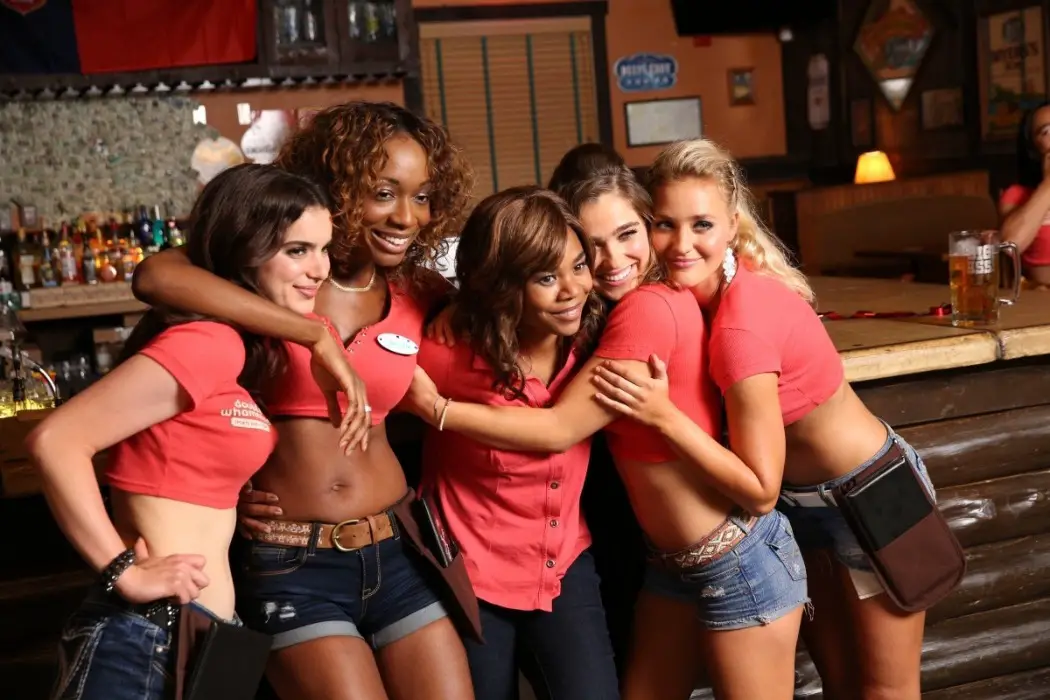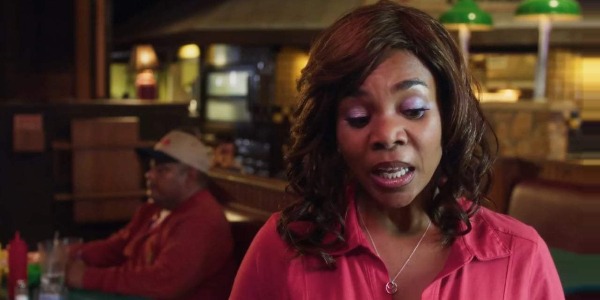SUPPORT THE GIRLS: Regina Hall’s Finest Performance To Date

Alistair is a 25 year old writer based in Cambridge.…
Director Andrew Bujalski has often been referred to as the “Godfather of Mumblecore”, somewhat condescendingly, due to the aesthetics of his earlier feature films. Starting with his debut, 2002’s Funny Ha Ha, his drily comic character studies utilised 16mm cinematography married with naturalistic performances and loosely written screenplays where there were as many awkward “um’s” and “ah’s” as there were spoken words.
He may not have been the first filmmaker to establish this aesthetic, but when mumblecore filmmakers like Joe Swanberg and the Duplass Brothers broke out later that decade, he was looked back upon as the originator of this semi-slacker film movement.
Bujalski’s most confident film to date
Support the Girls is his latest film to push back against how he and his works have been assessed by the critical community in general. It’s still a loosely structured comedy, but this time his earlier recurrent obsession, young people still figuring out their paths in life, are relegated to the sidelines; like his previous film, 2015’s Guy Pearce starring romcom Results, this is a film about a professional with a positive outlook having a crisis within their own workplace. Here, said professional is the general manager at a Hooters-esque sports bar, whose unwavering (albeit highly pragmatic) optimism and the affection she affords to her employees causes the narrative at hand to have very little in the way of conventional conflict.

But considering this locale would be the butt of a cheap joke in any other film, Support the Girls succeeds because it depicts this world without an ounce of cynicism or winking irony. Like the lead character, it’s incredibly warmhearted and ready to embrace the positive attributes of everybody in its orbit – but that doesn’t mean it suffers fools gladly. The tensions of the workplace are small scale, but are substantial enough to counter any argument writing this off as a mere “Nicecore” slice of life dramedy.
Regina Hall plays Lisa, the affectionate general manager at Austin sports bar Double Whammies, who we follow throughout what will become a particularly vexing work day. While opening up for the day, she is informed that somebody is trapped in the airvents, blocking television signals prior to a big boxing match that evening, is told that an employee can’t make it in due to a serious injury, and has to train a dozen new girls as part of a practical job interview process. Everybody on the team, and the loyal returning customers, look up to her – but her affectionate personality is compromised by the events of one day, which in its peculiarly unremarkable fashion, transpires to have a profound impact on the planned career in front of her.

Hall rarely gets credit for her diversity as a comedic performer; she’s equally effortless in dialling it up to eleven to play the wildcard comic relief, and at showing restraint while playing “straight man” roles. Although Support the Girls is nominally a comedy, it’s anchored in a central performance that aids a character arc closer to social realist drama than the lighter touches surrounding it. It’s Hall’s finest performance to date, that helps sell a profundity that doesn’t really manifest itself until after viewing.
A Quietly outstanding lead performance
I said earlier that the film was devoid of conflict, and despite some of the more turbulent events of the day (such as the outcome of a car wash fundraiser to raise money for a sick employee’s hospital bills), the dramatic tension is presented largely as the inner workings of Hall’s character. As the film progresses, the pragmatism that tempers her loving, optimistic outlook increases to the extent that she has the closest thing to a “crisis of faith” conceivable in what is essentially a hangout movie.
Bujalski’s mumblecore instincts ensure we are never treated to any verbal cues explaining her change of heart; instead, throughout the day, Hall shows the facade slowly dropping, silently questioning whether the employees who profess their admiration for her are taking advantage, without ever directly putting these concerns into words. It’s a quietly mesmerising performance, wonderfully expressive at highlighting the character’s inner conflicts while maintaining a brave, welcoming face outside. It’s not only her definitive performance to date, but also the one furthest removed from her breakout role in Scary Movie – and mentioning these disparate roles side by side only serves to point out that her capabilities as an actress should have been rewarded with dramatic roles as good as this a long time ago.

Dramatic tensions are subverted elsewhere in the narrative, where the spectre of a corporate sports bar, that offers the identical selling points of boobs and beers, is threatening to put Double Whammies out of business. This is, in Bujalski’s offbeat manner, a commentary on homogenous commercial chains displacing independent businesses with real ties to the communities they serve. This also might be the only area where the film doesn’t fully realise its potential, never venturing below the surface and offering something substantial to say about the displacement caused by capitalism.
It may add a concrete end to the central narrative arcs by its inclusion, but its peripheral appearance as a source of conflict throughout doesn’t have the bite it needs; Edgar Wright’s The World’s End treaded similar water five years ago, and similarly to Support the Girls, its cultural critiques remained in the margins. They just created a stronger satirical impression.
Conclusion: Support the Girls
With Support the Girls, Andrew Bujalski continues to grow as a filmmaker, creating a film where the genuine heart afforded to its characters doesn’t compromise the pragmatism of the worldview. But despite the sizeable ensemble, this is really the Regina Hall show – and her exquisitely underplayed performance is the highlight of her career so far.
What are your thoughts on Support the Girls?
Support the Girls is released in the US on August 24.
Does content like this matter to you?
Become a Member and support film journalism. Unlock access to all of Film Inquiry`s great articles. Join a community of like-minded readers who are passionate about cinema - get access to our private members Network, give back to independent filmmakers, and more.
Alistair is a 25 year old writer based in Cambridge. He has been writing about film since the start of 2014, and in addition to Film Inquiry, regularly contributes to Gay Essential and The Digital Fix, with additional bylines in Film Stories, the BFI and Vague Visages. Because of his work for Film Inquiry, he is a recognised member of GALECA, the Gay & Lesbian Entertainment Critics' Association.













